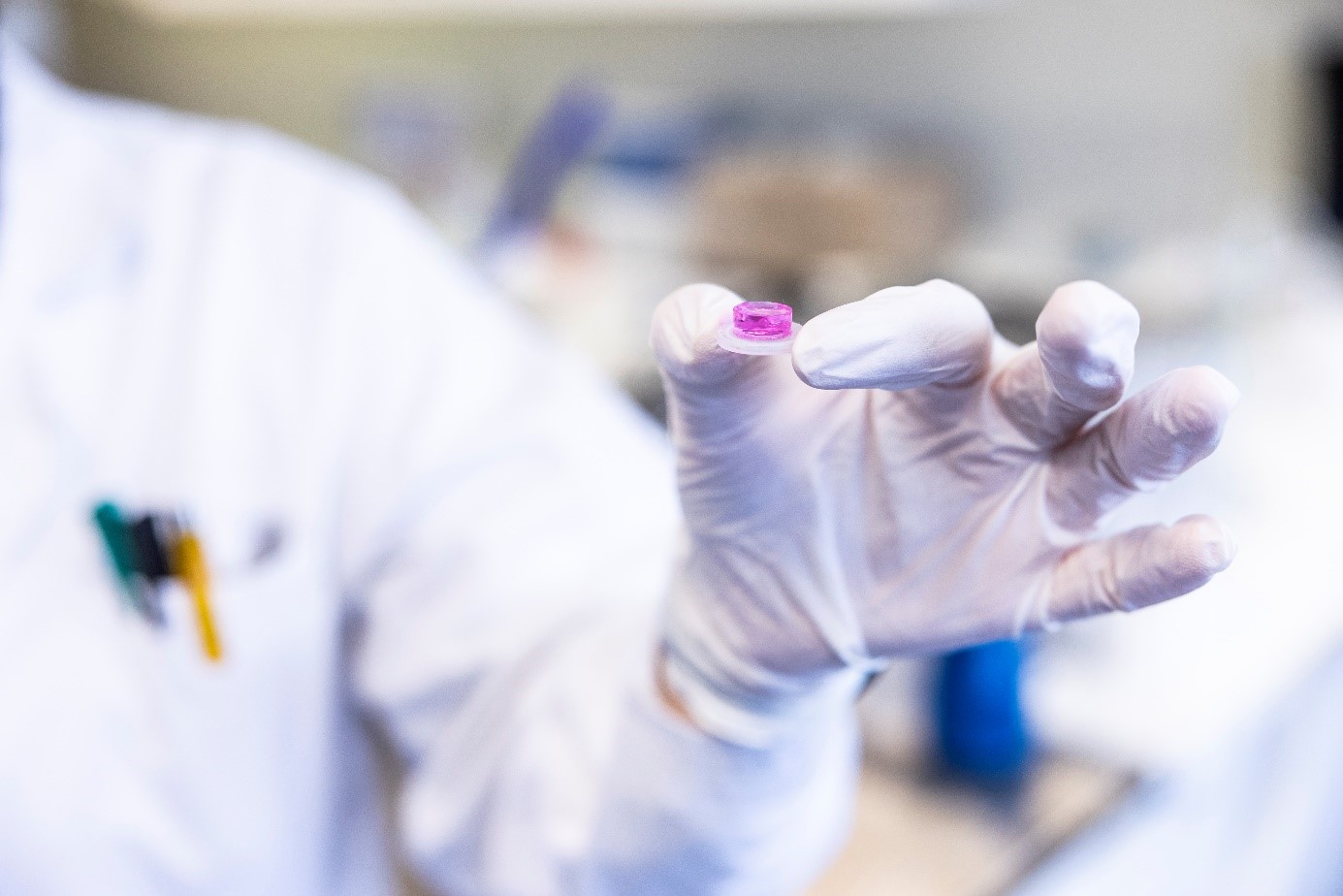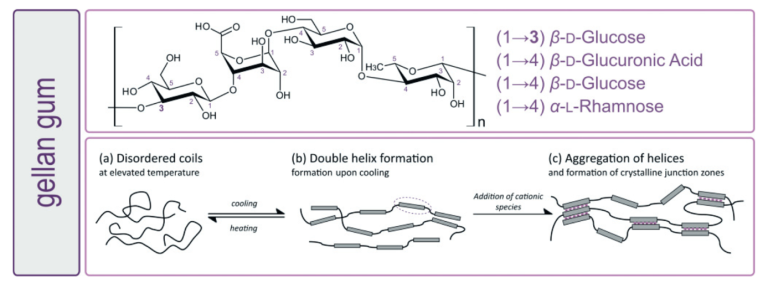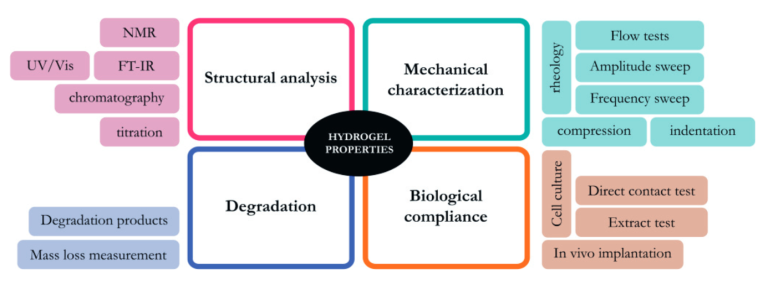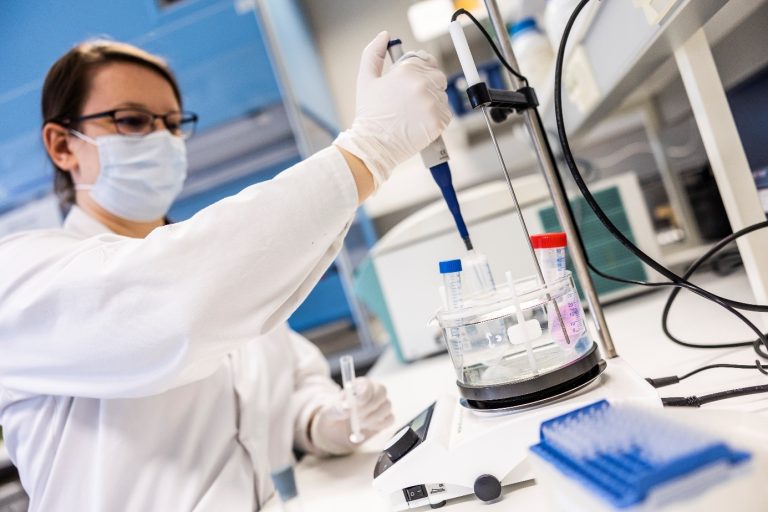
Design strategies for polysaccharide hydrogels used in soft tissue engineering
On Friday, June 16th 2023, Christine Gering, from BIOMATDB Consortium member Tampere University, publicly defended her doctoral dissertation, which explored the modification, characterisation, and application of hydrogels for soft tissue engineering, in particular those made from the polysaccharide Gellan Gum. The goal of her thesis was to investigate and refine the available methods for hydrogel modification and to characterise the final product.
Gellan Gum is commonly known as a food additive and thickening agent having excellent gelling properties. It can form different types of gels, such as firm, brittle, elastic, and flexible gels, depending on the formulation and processing conditions. It is secreted by the bacterium Sphingomonas Elodea. Commercially, it is produced via bacterial fermentation. In addition to the food industry, Gellan Gum has been investigated for applications in the field of medical technology such as drug delivery systems, wound dressings, tissue adhesives, tissue engineering and regenerative medicine.
“It’s a great material, cost efficient, non-animal origin, transparent and inherently bioinert, which makes it an intriguing material for cells to grow once bioactivated”, says Gering.

In her dissertation, Gering showed that there is a wide range of modification techniques that are suitable for Gellan Gum. She showed that investigated formulations could form self-supporting hydrogels and were able to be sterilised using filtration. She tested modifications for different cell types such as heart cells and vascular cells. She also pointed out that the study of basic mechanical and structural properties should be standard when presenting a novel hydrogel, because the relationship between the biomechanical properties and the observed cell response and tissue development is relevant for further development.

Now, as a PhD, Christine Gering continues her research with hydrogels in the Biomaterials and Tissue Engineering Group at Tampere University.

The doctoral dissertation is available online. Read more about Christine Gering’s thoughts on her journey to becoming a researcher and PhD here.
Author: Minna Veiranto
Photos: Jonne Renvall/Tampere University
Figures/Pictures: Christine Gering
References
[1] Gering, Ch. (2023). Design Strategies for Polysaccharide Hydrogels Used in Soft Tissue Engineering : Modification, Testing and Applications of Gellan Gum. Tampere University. Available at: https://trepo.tuni.fi/handle/10024/147595
Keywords
Gellan Gum, hydrogel, polysaccharide, soft tissue engineering, design strategies, dissertation